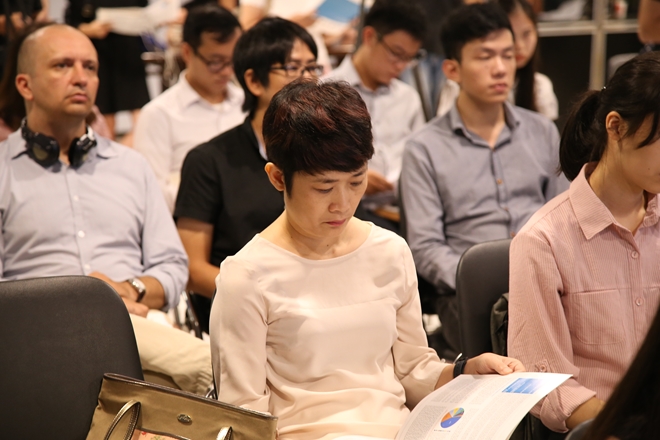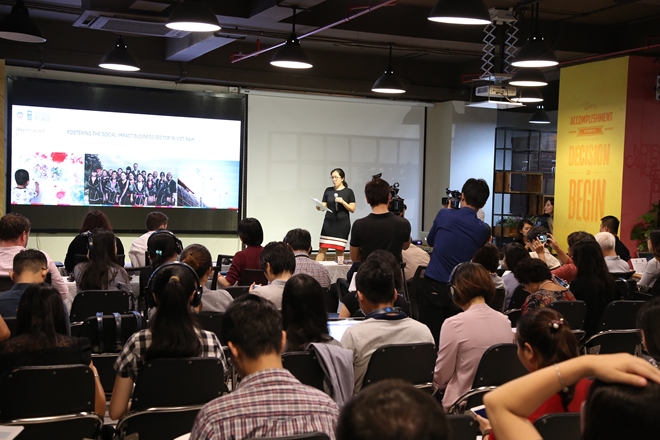Social Impact Business – key factor to the achievement of the SDGs
 |
| Professor Tran Tho Dat, President of the National Economic University |
The study - Fostering the Growth of the Social Impact Business sector in Viet Nam highlights the need to support the growth of the Social Impact Businesses and recognize these enterprises and entrepreneurs as key partners to the achievement of the SDGs.
SIBs are understood as “organizations that have both trading activities and a commitment to positively impacting society/environment as the two central tenets of their strategic operations. This balancing of their social/environmental aims with a commercial model allows them to sustainably solve social and environmental challenges”.
 |
| Ms. Catherine Phuong, UNDP Assistant Country Director in Viet Nam |
Jointly conducted by NEU, UNDP and the University of Northampton, the study shows that balancing profit with impact is a sustainable business model. 70% of SIBs are making profit. 59% of SIBs in Viet Nam choose to balance social and economic objectives, whilst 34% focus on their social mission. Jobs, Well-being and Environmental protection make up the top three areas of impact for SIBs.
Addressing the launch, Professor Tran Tho Dat, President of the National Economic University, said that the NEU started promoting business for society and sustainable development in 2009 and the establishment of the Centre for Social Innovation and Entrepreneurship (CSIE) in 2017 reflected the University’s strong commitment in this this area.
 |
“I believe that business for society and sustainable development is the business model of the 21st century, this is a win-win model that has many values and entrepreneurs create both economic profit and positive impact on society while mitigating negative impact on the environment,” he said.
Ms. Catherine Phuong, UNDP Assistant Country Director in Viet Nam, agreed with Professor Tran Tho Dat. "Embracing sustainable business models is vital for Viet Nam," she said. "This involves developing a more sustainable and inclusive approach to economic growth, through innovation and technology, improving productivity whilst addressing key social and environmental challenges faced by the country, and accelerating the SDGs results”.
 |
According to the study, a typical SIB in Viet Nam is micro-sized in personnel and revenue. But SIBs are leaders in promoting diversity and inclusion. Almost all SIBs employ female staff and up to three fourths of them have people with disabilities in their workforce.
To support the growth of the SIB sector, the study suggests increased access to sources of capital and other innovative financing methods for the SIB sector; strengthened connection between SIBs and the wider private sector; and the establishment of a representative network for the SIB sector.
The findings are taken from nearly 500 enterprise representatives who responded to the survey; in-depth interview with 62 individuals representing various stakeholder groups; and three consultative workshops.

